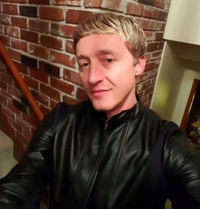Matthew Pfeiffer: Difference between revisions
No edit summary |
No edit summary |
||
| Line 3: | Line 3: | ||
|image=Metthew_Pfeiffer.png | |image=Metthew_Pfeiffer.png | ||
|period=September 2006 to January 2007 | |period=September 2006 to January 2007 | ||
|field=to be.. | |||
|university=Portland State University | |university=Portland State University | ||
|mentor= to be.. | |||
|professor=Dr. Harry Anastasiou | |professor=Dr. Harry Anastasiou | ||
|involvement=“Extending EU Citizenship to the eastern end of Europe” project | |involvement=“Extending EU Citizenship to the eastern end of Europe” project | ||
|achievements=to be.. | |||
}} | }} | ||
Latest revision as of 03:52, 1 October 2020
Matthew was a volunteer at the Future Worlds Center from September 2006 to January 2007. He conducted his practicum as part of a Masters degree he was completing at Portland State University (USA). During his tenure at Future Worlds Center, Matthew contributed to the content of the “Extending EU Citizenship to the eastern end of Europe” project website.
The Extending EU Citizenship to the Eastern End of Europe project is supported by a web site (www.EUcitizenship.net). Mathew has added over 60 articles, many of which were summarized and analyzed for the reader. These articles were found by researching many EU websites and international news companies’ websites. While at Future Worlds Center, Matthew contributed also to several organizational tasks. For example, he edited academic articles and supported other associates with their projects. He also collaborated with our personnel on grant writing. For example, he contributed to the preparation of grant application on Safer Internet (which, by the way, received funding).
Matthew’s prior exposure to a foreign environment obviously contributed to his astonishing ability to connect and communicate with our local team immediately. An important project that Matthew completed during his short stay was the video-taping and interviewing of all our people. These interviews were conducted to learn about the personalities and diverse backgrounds of people working at Future Worlds Center, and explore questions like why they join the organization, what their work consists of etc. These interviews may help people interested to join, find out what kind of people find their place in the organization, where they come from, and what projects they are working on. By doing this, outsiders get an inside look at exactly what life looks like at Future Worlds Center.
